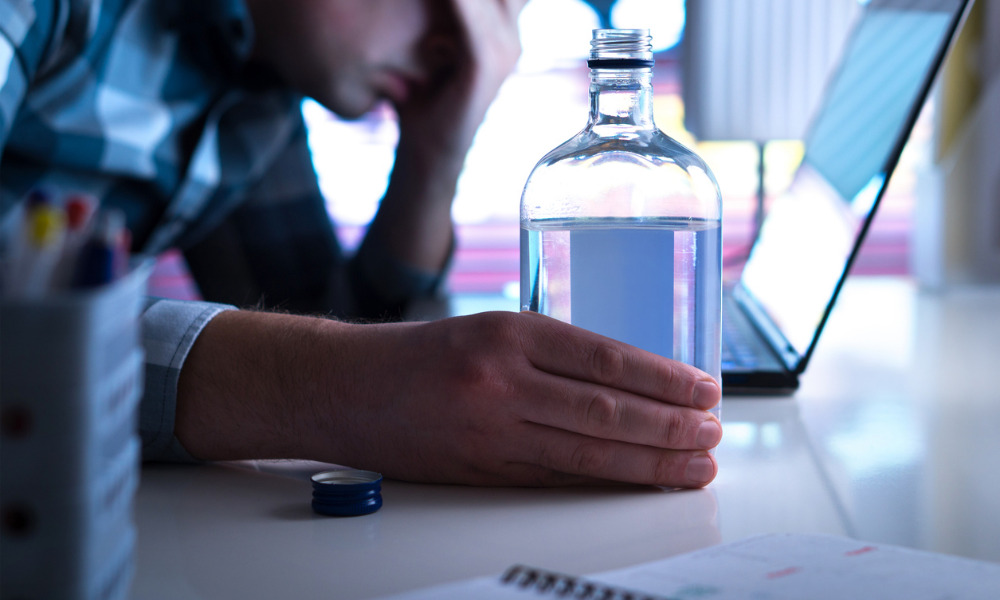Taking care of mental health is just as important as taking care of physical health

Addiction doesn’t care about your status, your skin colour, your religion, your age, or your gender identity. Addiction tricks your brain into thinking that it needs a specific substance or behaviour for relief and survival to the point that it can end up costing a person their health, job, relationship, house, family, and even their life. In cases of chronic alcohol and opioid addiction, medical support is needed to safely withdraw off the substance making it even harder for a person to stop since they have become physically dependent on it.
My career in working in the field of addiction and mental health has allowed me to meet the most fascinating, intelligent, creative people who recognize that they had a major problem in their life (their addiction) and took the huge step of getting proper help. When someone has an addiction, there is often a lot of shame involved because they know what they’re doing is hurting themselves and others, but they just can’t stop. Addiction is not about having “weak will-power”; it is much more complex than that, and therefore requires more complex support.
Did you know that mental health issues, unaddressed trauma and pain are underlying factors in addiction? Addiction results from a person’s (usually unconscious) attempt to cope with this underlying pain and find some form of relief. Many people who start treatment for their addiction often equate the comfort they got from using their substance as “being with their best friend”.
Taking care of your mental health is just as important as taking care of your physical health. Sometimes, a major life stressor happens (such as a car accident, divorce, etc.) that affects a person’s mental health making them more vulnerable to using a substance or engaging in an unhealthy behaviour to cope with the pain, grief, anger, etc. resulting from this event.
Unprocessed trauma can affect how the brain responds to the world, creating increased internal distress and a decreased ability to cope with the external stressors. Multiple unprocessed traumas can result in PTSD (Post-traumatic stress disorder) which can increase a person’s anxiety, depression hypervigilance, isolation, irritability, negative thinking, nightmares and/or flashbacks. PTSD symptoms can be treated with the help of a trained mental health professional. Sometimes, these symptoms can be so intense that a person starts using a substance or starts engaging in an unhealthy behaviour to help them numb the pain and provide temporary relief from the symptoms. Unprocessed childhood trauma can also stay ‘stuck’ in a person’s brain and nervous system from a young age, making it more difficult for the person to cope with distressing thoughts and emotions. Therefore, when this person is exposed to a substance or unhealthy behaviour that brings relief to them, they will continue it until the brain becomes dependent on that substance or behaviour resulting in an addiction.
Noticing a decline in a person’s functioning, sleeping and eating patterns, appearance, attitude and/or interactions with others may point to a decline in a person’s mental health and possible addiction. If someone already has mental health issue, an addiction may make it worse by increasing a person’s anxiety, depression, irritability and negative thinking. Physical signs of an addiction may include a sudden change in weight, flushed skin, redness in the eyes, slurred speech, unexplained absences, regularly being late for work or leaving work prematurely. If you notice any of these signs or changes in your co-worker, it is best not to assume that they are struggling with an addiction (because it might be a mental, physical, or life stressor), but rather be kind and supportive without judging them – they are most likely going through something and judging them will only increase their shame and make them feel even more isolated.
Seeking help mental health support is a healthy option for anyone, even if you don’t identify as having an addiction. Learning how to decrease stress, manage anxiety, use healthy communication skills and practice mindfulness can help create a better work-life balance, increase productivity and create more presence, joy and fulfillment in your life. Supporting your mental health can come in many forms, including working with a mental health professional, joining a peer support group, creating healthy social connections, having a hobby, practicing mindfulness and/or meditation, going for daily walks, having a regular sleep routine, learning to say “no”, eating healthy food, and doing something that brings meaning and/purpose into your life (such as volunteering, creating art, having a spiritual practice, etc.).
Employers can always provide more mental health support to their employees through EAP programs, advocating a healthy work-life balance (i.e. encouraging their employees to take their designated breaks and using their vacation days, not checking work emails after hours, etc.), providing team-building events, providing healthy lunch options, having an engaged and empathetic manager, providing psychoeducation and resources for mental heath and addiction support.
Taking the time to learn about mental health and addictions can be a helpful tool to have for yourself, your family and your coworkers – you never know when an unexpected life event will happen that may impact yourself or those around you. We all go through ups and downs in life, and we can make it easier for each other through increased knowledge, understanding and compassion.
Kinga Burjan, MA, RP, is Clinical Director and Virtual Integrated Programming for Trafalgar Addiction Treatment Centres.






